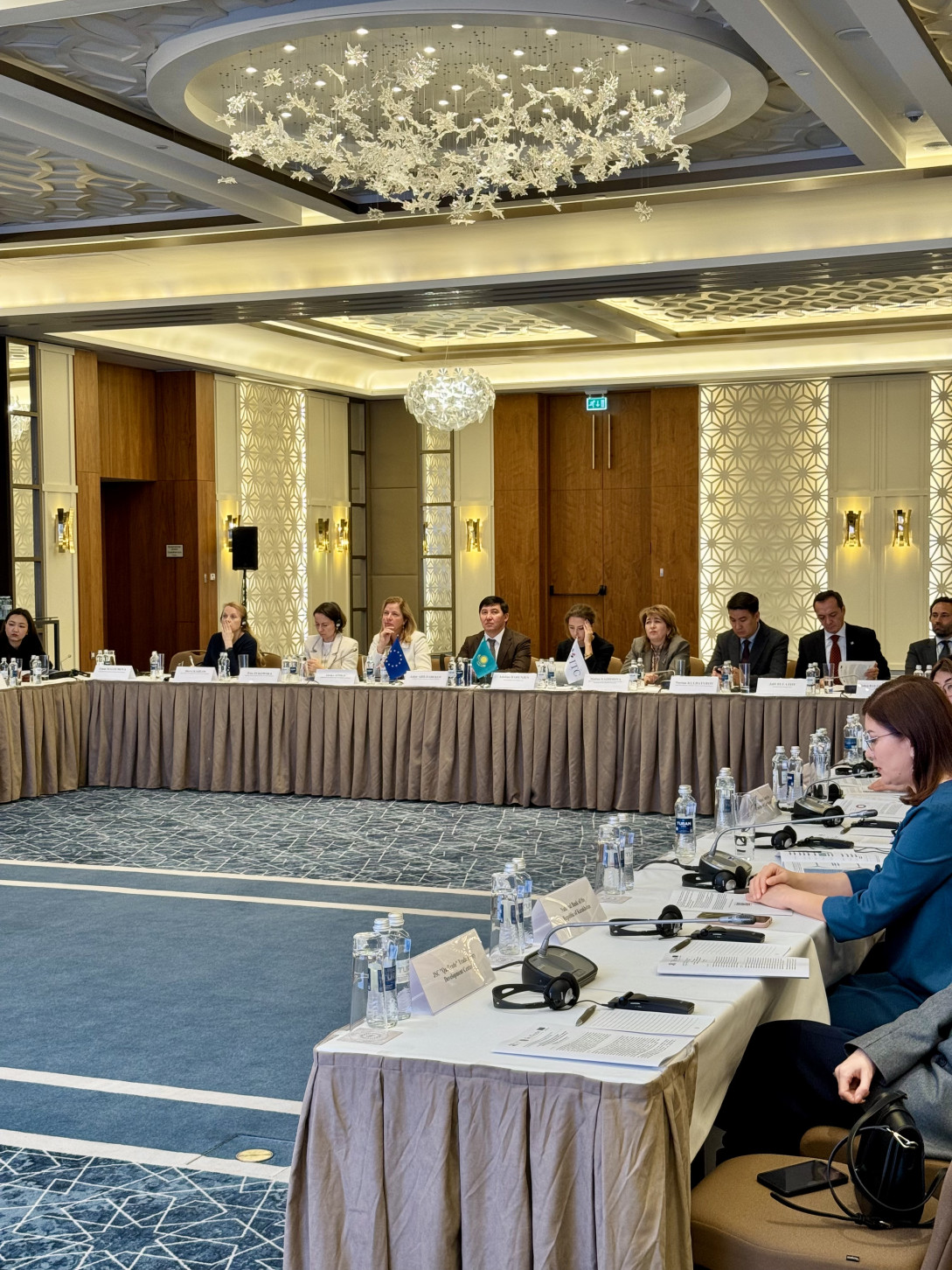Kazakhstan Advances Digital Trade Integration with European Union and ITC Support: CART.IS Analysis Charts the Way Forward

The analysis revealed that although Kazakhstan has made substantial progress, 60% of trade-related services still require cross-border integration, and 52% of electronic services are not yet connected to the national system for interagency data exchange.
“Further simplification of trade procedures requires not only digitalisation, but also ensuring architectural compatibility between government agency systems. The creation of a unified information space through the national system for interagency data exchange will open up opportunities for real-time exchange of data, rather than documents, reduce the burden of compliance for businesses, and increase the competitiveness of Kazakhstan’s exporters in international markets,” noted Vice Minister of Trade and Integration of the Republic of Kazakhstan, Aidar Abildabekov.
“Kazakhstan truly stands out in the region through its remarkable progress in digital transformation - and as a strategic partner of the European Union in advancing paperless trade and e-government. These achievements lay a solid foundation for deeper regional integration and stronger links with European markets,” highlighted the EU Ambassador to Kazakhstan, Aleska Simkic.
The study also found that only 5 of the 12 institutions involved in trade processes currently have dedicated digitalisation departments, highlighting the importance of strengthening institutional capacity and coordination.
“Digitalisation and the transition to completely paperless trade in the mid-term period will increase Kazakhstan’s trade turnover by 10–15% annually by reducing costs for entrepreneurs in Kazakhstan,” noted Nurlan Kulbatyr, Deputy Director General of QazTrade JSC.
The assessment was conducted within the framework of the Ready4Trade Central Asia: Fostering Prosperity through the Trans-Caspian Transport Corridor project, funded by the European Union and implemented by ITC. The project contributes to the modernisation of trade procedures, enhanced regional connectivity, and inclusive economic growth.
“Digitalisation delivers the greatest impact when approached systemically. By looking across institutions, data flows and border agencies, the CART.IS assessment helps ensure that digital reforms are coherent, interoperable and aligned with the country’s broader trade facilitation agenda”, concluded Adelina Harunjen, Trade Facilitation Programme Manager, ITC.
Developed by ITC, the CART.IS methodology helps governments assess and coordinate their digital ecosystems for cross-border trade. With ITC’s technical support, it enables evidence-based planning and generates comparable data to advance regional cooperation on digital trade in Central Asia.
NOTES FOR THE EDITOR
About Ready4Trade Central Asia: Fostering Prosperity Through the Trans-Caspian Transport Corridor (2024-2028)
This four-year technical assistance project funded by the European Union (EU) aims to advance the EU-Central Asia connectivity agenda through increasing the operational efficiency of the Trans-Caspian Transport Corridor and internationalisation of Central Asian business. This will be achieved through simplifying cross-border formalities to attract trade and sustainable investment; improving regional coordination to foster trade and transport connectivity; and enhancing the competitiveness of micro, small and medium-sized enterprises to facilitate their access to regional and EU markets, including through leveraging the Trans-Caspian Transport Corridor.
About the International Trade Centre
The International Trade Centre is the joint agency of the World Trade Organization (WTO) and the United Nations. ITC assists small and medium-sized enterprises in developing and transition economies to become more competitive in global markets, thereby contributing to sustainable economic development within the frameworks of the Aid-for-Trade agenda and the United Nations’ Sustainable Development Goals. For more information, visit www.intracen.org.
About the European Union
The European Union is an economic and political union of 27 European countries. It is founded on the values of respect for human dignity, freedom, democracy, equality, the rule of law and respect for human rights, including the rights of persons belonging to minorities. It acts globally to promote sustainable development of societies, environment and economies, so that everyone can benefit.
CONTACT DETAILS
Media enquiries:
Madina Iskazina
Communications Consultant
International Trade Centre Office in Kazakhstan
E: miskazina@intracen.org
T: +7705 377 3535
